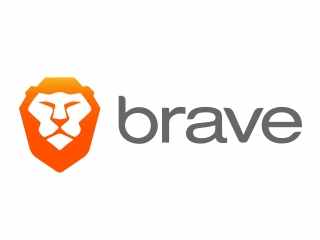Brendan Eich, the co-founder and CEO of the Brave Browser, (and also inventor of JavaScript), recently went on the Jolly Swagmen podcast. On this episode he talks about what led him to building the Brave Browser – a browser that blocks ads and tracking scripts by default – and how he wants to fundamentally change the economics of the web.
Well worth a listen here:
Current state of the web
At the moment the majority of the websites have a business model that is powered by advertising. This means that advertisers such as BMW and Coca-cola by space on sites across the web. They then put (what they think are) compelling messages in the space in the hope that people who see them will purchase their product.
Some of the biggest sites on the web such as Facebook and Google get the majority of their revenue this way. By getting the majority of their revenue from advertising, companies like these are able to make their products free to the people who use the product.
Advertisers like BMW and Coca-cola can go directly to sites (or in industry speak, publishers), and agree on a deal to purchase some space on the website for a time. This works for the bigger publishers with significant traffic. These bigger publishers tend to be bigger organisations and can afford to have sales staff and the necessary IT expertise to co-ordinate these ‘direct’ buys. There are however many more medium to small sites that would like to be open to advertising on their sites but don’t have the man power to facilitate on going ‘direct’ buys from advertisers.
For these smaller publishers there is however a solution. Companies like Google and others have created technology that allows them to bundle the space from many sites together. They then offer the space across all of the small and medium websites to advertisers. For this functionality of distributing ads Google and similar companies take a slice of the advertising dollars. This is known in the industry as ‘programattic’. The website gets some revenue where otherwise there would be none. A win win.
There is competition in the online programatically advertising space which manifests itself in 2 main ways:
1. Fight for attention
Websites powered by advertising get more money the more users they get, and the more time users spend on the website.
2. Fight for effectiveness
Advertisers are willing to pay more for space on a website if the users on a website are more likely to buy their product. This leads to websites trying to get as much data as they can about their users as they can. This includes knowing where they are (across the web) as well as various preferences and life stages.
Potential future of the web
Brave the browser – alongside the Basic Attention Token – disrupts this business model. Firstly by blocking ads and trackers by default. This means that not only do users not see any ads but companies are not able to build profiles of users as the trackers do not work.
Secondly, through the Basic Attention Token they are trying to create a currency for the web that advertisers, publishers and users can all use. Brave are building an platform to deliver ads to those using the browser who opt in. To be able to place ads on this platform advertisers will need to purchase and transact with Basic Attention Tokens. The Brave browser then records how many people have seen ads on what sites. The Basic Attention Tokens used to place the ads will then be distributed to the publisher whose site the ad was on and the user who viewed the ad.
This will eventually open up new value transfer opportunities between publishers and users. For example publishers can start requiring Basic Attention Tokens to view premium content or for access to features such as games. Users can also support sites they like by choosing to donate their Basic Attention Tokens to them.
This is a very interesting idea at a very relevant time in the digital advertising space. According to various pieces of research somewhere between 10% and 30% of all pageviews are consumed through an adblocker, and this percentage is growing. Many publishers are exploring other opportunities to generate revenue and the Basic Attention Token seems to be a very interesting opportunity.
For more detail on the Basic Attention Token take a look at their whitepaper below:
BasicAttentionTokenWhitePaper-4